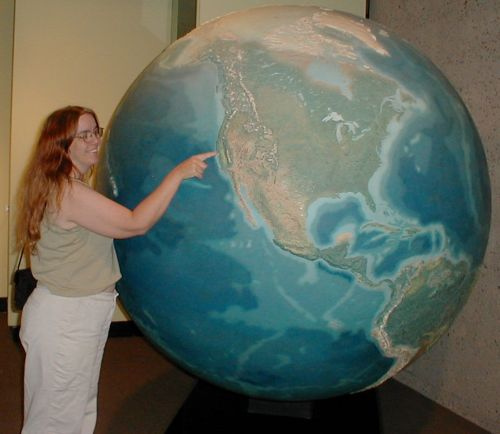Maybe I just cry easily, but this video from the National Science Foundation pushed me over into tears:
I'm saddened when I listen to teenagers, or even adults, or read what they've written online, and it smacks of scientific illiteracy, or even scientific ambivalence.
A couple of years ago, I took a college-level class in which we studied, among other things, the effect of the full moon on behavior. Study after study we examined showed that even when, for example, emergency room staff or police officers say people behave more wildly during a full moon, statistics -- based on arrests, ER visits, psych ward incidents, and other apparent behavior measures -- show that there really is no causal relationship between behavior and the phase of the moon. (In the few small studies that show some minor correlation, it can be explained elsehow, e.g. the full moon only increased wild behavior when the weather was also warm and folks were hanging out on the street more.) But after this investigation, students still insisted that no matter what science suggested, they knew that the full moon affects behavior because their nieces and nephews threw more tantrums, or they saw more chaos on the job, or whatever. Science was irrelevant. They didn't seem to get how it worked.
The kids in this program are excited about science. The topic at hand is astronomy, but they're not all interested in that, specifically. Some want to be doctors, one says she wants to be a marine biologist. Some might even end up being teachers, or stay-at-home parents, or captain ferries that cross the bay. But they're learning, they're excited about learning, and they're excited about science. This is priceless. These are the kids we need growing up into our future, and making it go.
I'm not sure why I cried when I read this. Maybe it's because these are kids mostly from Oakland, and mostly African-American, and the high school dropout rate in Oakland's phenomenal, especially within the African-American community. Maybe it's because a female, African-American astronomer is part of their worldview now. Maybe it's because these are girls, and the adults working with them seem so much to care that they grow up with positive, science-related educational experiences. Maybe it's because these are kids and need a positive science background, and many public schools can be a hard place to get that these days, and the Girl Scouts and Chabot Space and Science Center and the other people and organizations behind this program are offering it to them.
These are kids who will grow up as better critical thinkers, with experience reading about science and learning how it applies in "real life." Their own experiences and perceptions won't, as much, form the bases for their realities. Their understanding of what is possible out there, both in science in general, in the universe, and in their own lives, are forever expanded.
The Bone Temple
1 day ago

No comments:
Post a Comment